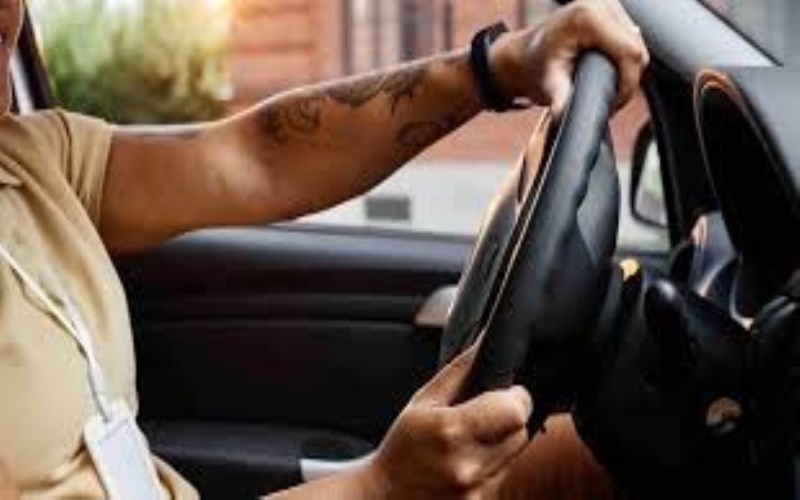Rideshare services, like Uber and Lyft, have transformed the landscape of personal transportation, melding convenience with technology. Yet, this shift in the public transport paradigm introduces complexities, mainly when dealing with accidents. Understanding the intricacies of these events requires insight into the dynamics involved.
An Overview of Rideshare Accidents
An uptick in rideshare-related accidents accompanies the surge in rideshare popularity. Various factors contribute to these incidents, ranging from driver fatigue to distraction from app interfaces. According to recent reports, rideshare services are involved in many urban accidents. These incidents often occur as drivers rush to meet demand, attempt to navigate unfamiliar territories, and maintain high satisfaction ratings, which can impact their earnings directly. Such factors underline the importance of understanding and addressing the root causes of these accidents to enhance safety for all users. By grasping the role a Philadelphia rideshare accident lawyer might play, both passengers and drivers can better navigate potential legal mazes and ensure their safety is prioritized.
Legal Responsibilities in Rideshare Situations
Legal responsibilities in rideshare accidents can be complicated, involving multiple layers such as driver liability, passenger rights, and company coverage. Drivers operating under rideshare platforms may or may not have adequate personal insurance to cover accidents. Companies like Uber and Lyft often provide some insurance, but these typically kick in only under specific circumstances. As a passenger, you must be aware of your rights to compensation if you are involved in an incident. Legal counsel can assist in deciphering the often-confusing terms and conditions, ensuring that all parties are justly compensated for any injuries or damages incurred.
In Philadelphia, the complexities of rideshare accident liability are heightened by the city’s high rate of traffic-related fatalities, particularly among pedestrians. Recent statistics show that Philadelphia has one of the worst rates of traffic deaths per 100,000 residents in the U.S., with many incidents involving rideshare vehicles contributing to this alarming trend. A notable case involved an Uber driver making an illegal turn, resulting in a fatal crash on Kelly Drive, underscoring the potential dangers associated with rideshare services in urban environments. As such, understanding your legal rights and responsibilities is crucial for passengers and drivers alike in navigating these often murky waters of liability and insurance coverage in Philadelphia’s bustling streets.
Common Challenges in Rideshare Accident Cases
Rideshare accident cases present distinct challenges, primarily due to the many parties involved. Establishing fault becomes an intricate task, often requiring a comprehensive collection of evidence, such as app data, traffic reports, and witness testimonies. Insurance claims can also be cumbersome, with rideshare companies and personal insurers potentially disputing coverage responsibilities. Navigating these complexities sometimes necessitates professional legal assistance, specifically from those experienced in handling rideshare-related cases, to ensure fair evaluation and compensation.
Safety Tips for Rideshare Users
- Before entering a rideshare vehicle, always verify the driver’s name, picture, and the car’s license plate number as seen in the app.
- Utilize the in-app feature to share your ride details with a trusted contact, ensuring someone is aware of your whereabouts.
- Maintain vigilance by minimizing distractions such as phone usage and remain mindful of your surroundings throughout the ride.
For Drivers:
- Regular vehicle maintenance and safety checks are essential to ensure safe operation.
- Adopt defensive driving techniques, maintain safe distances from other vehicles, and be particularly cautious in unfamiliar areas.
- Limit distractions by using hands-free devices and setting navigation routes before starting the ride.
The Role of Technology in Rideshare Safety
Technology is at the heart of ridesharing, acting as a facilitator and a safety net. Companies have integrated safety features such as in-app emergency buttons, ride tracking, and driver background checks to enhance user security. These innovations have been instrumental in reducing incidents. For instance, the use of GPS and advanced mapping has not only improved efficiency but also contributed to safer trip planning. Continual technological enhancements are expected to be more significant in curtailing accidents and ensuring a safer experience for all involved.
Prevailing Trends in Rideshare Regulations
In response to the evolving nature of rideshare services, regulations have been continuously adjusted to enhance safety and accountability. For instance, recent legislative efforts aim to impose stricter background checks and ensure more comprehensive insurance coverage. According to industry experts, these changes aim to underpin safety and offer excellent protection for passengers and other road users. Keeping abreast of such regulatory adjustments is crucial for drivers and passengers to understand their rights and responsibilities better.
Stories From the Road: Real-Life Rideshare Incidents
A real-life account involves a passenger encountering a rideshare driver veering off course late at night. Thanks to the passenger’s vigilance and quick action in utilizing the app’s emergency feature, the situation was swiftly resolved with minimal harm. Such stories highlight the potential risks involved in ridesharing and the importance of staying informed and equipped to handle unexpected circumstances.
Moving Forward: The Future of Rideshare Safety
The future of rideshare safety is promising, driven by continuous advancements in technology and policy. Innovations such as AI-driven traffic management and predictive analytics are being explored to foresee and prevent accidents before they occur. As industry forecasts mention, these developments are expected to set new safety standards within the rideshare sector, ensuring improved protection for all stakeholders.
Conclusion: Staying Informed and Prepared
In conclusion, it is critical to understand the nuances of rideshare accidents and their subsequent legal and safety implications. Ensuring personal safety, knowing your legal rights, and staying updated with regulatory and technological changes can significantly influence your experiences in the rideshare domain. By taking these proactive measures, passengers and drivers alike can benefit from the convenience of ridesharing while maintaining a robust safety net.

